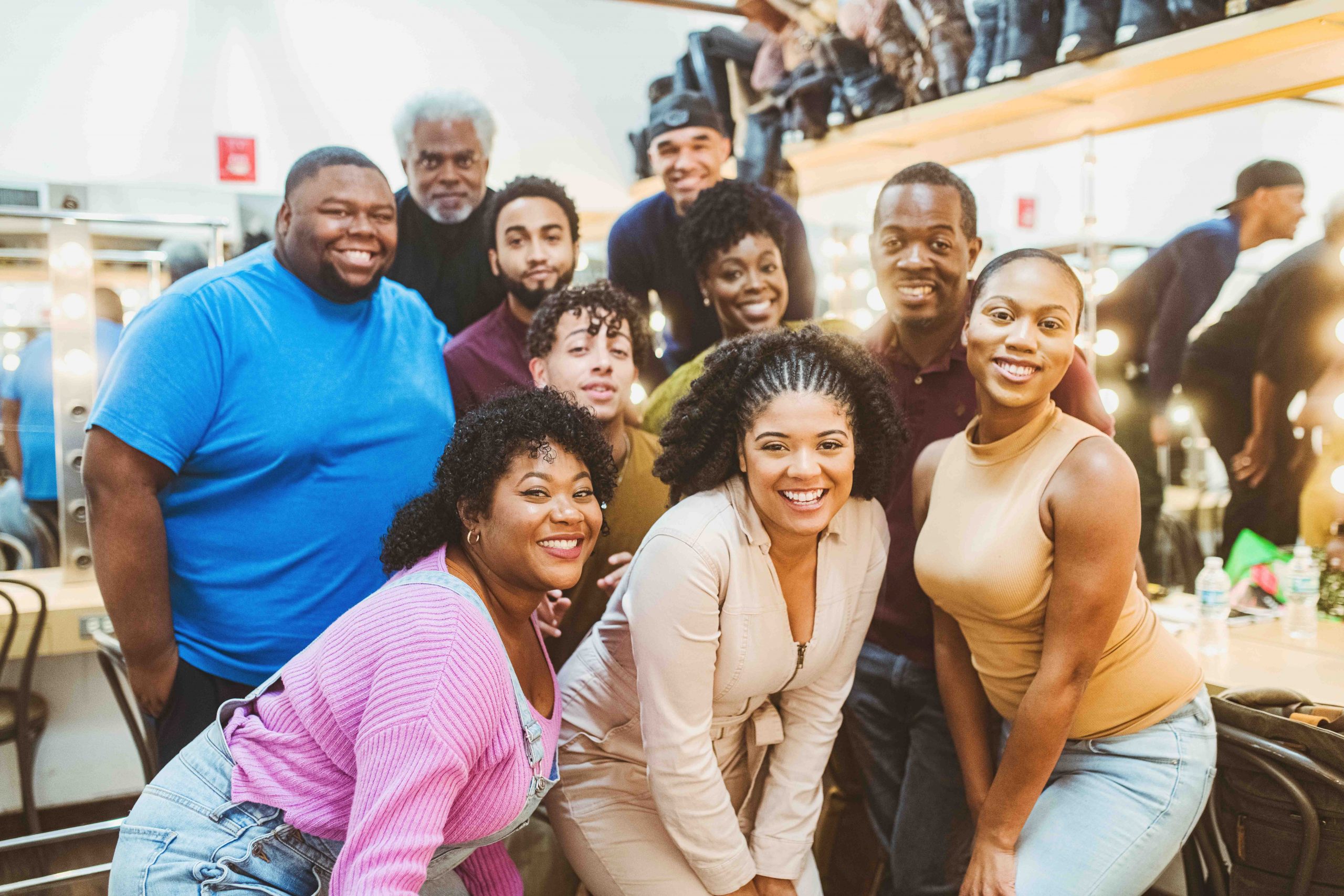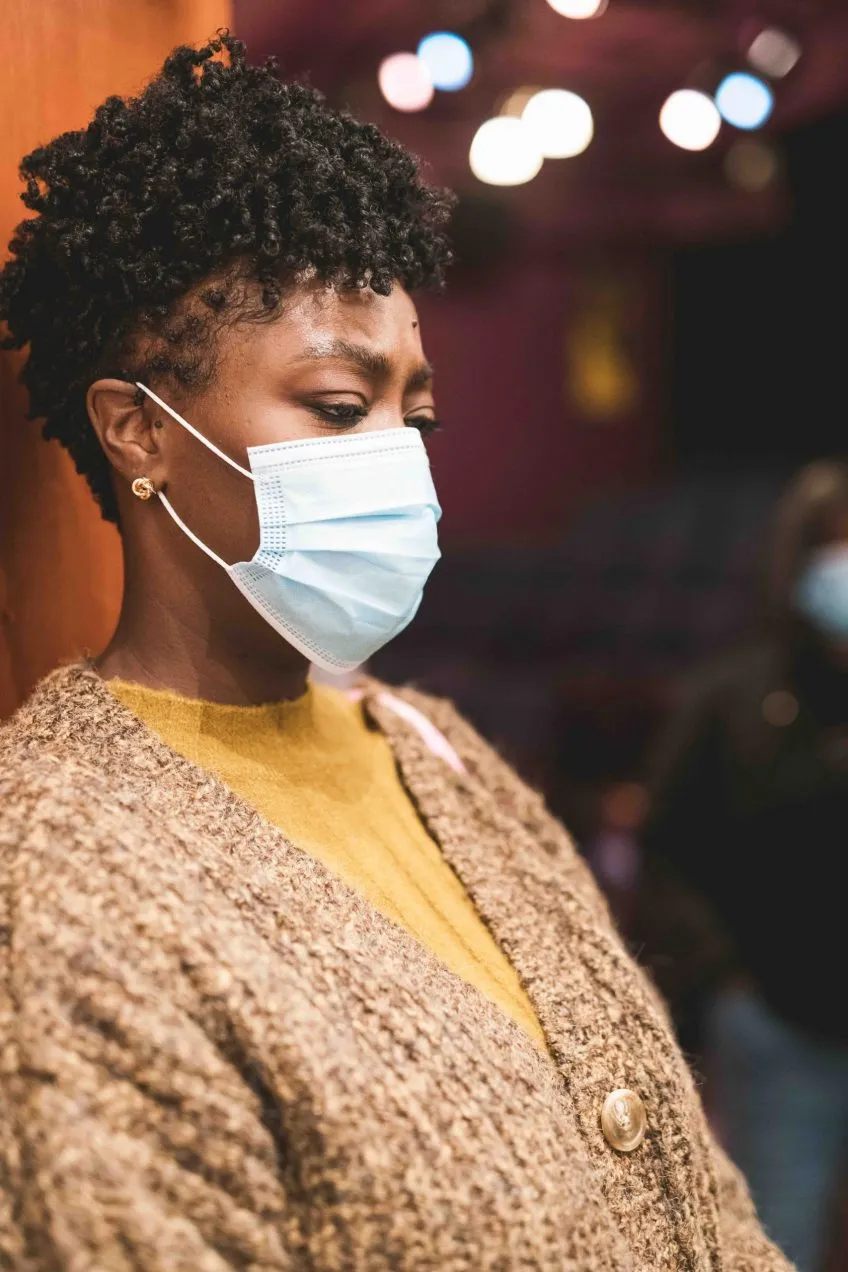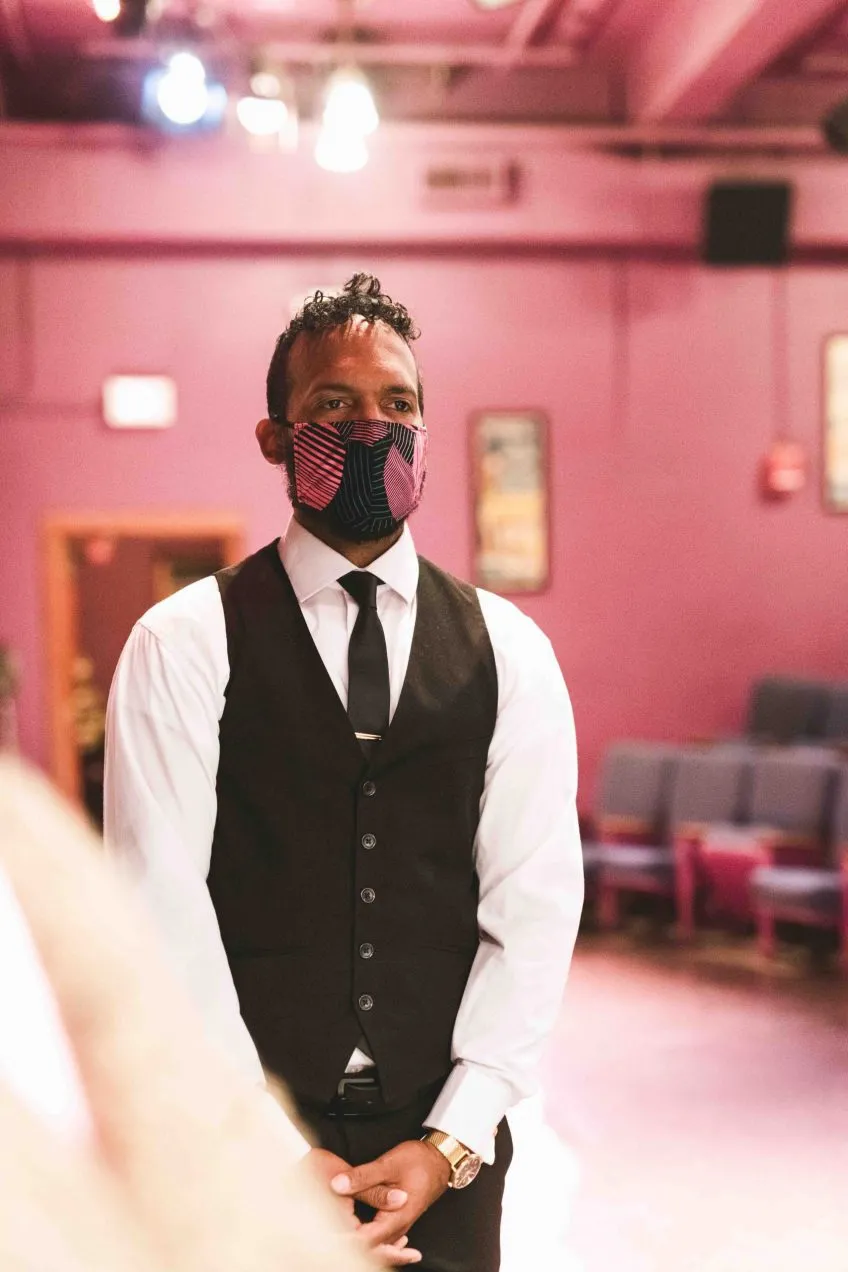Newly devised play presents theatre as a site for reconciliation

A newly created play by UF School of Theatre and Dance faculty, students, and alumni celebrated the lives and brought light to the injustice of the Newberry Six.
In 1916, a dispute involving Boisey Long, a Black resident of Newberry, allegedly started over a hog. Long’s family and relatives were taken to jail for their alleged involvement. Stella Young, Bert Dennis, Mary Dennis, Andrew McHenry, and Reverend Josh J. Baskin were later hanged by a mob. Long’s friend Jim Dennis was shot by a posse.
“New Berry” was performed from November 5 through 10 at the Hippodrome State Theatre, which was home to the courthouse where Long was found guilty by an all-white jury after 7 minutes of deliberation. The play, devised and directed by Assistant Professor of Acting Ryan Hope Travis, showcased the moments leading up to the tragedies and the lives of these individuals.
Travis was first exposed to the story of the Newberry Six when he heard of the passing of Dr. Patricia Hilliard-Nunn, a UF professor and community organizer. Hilliard-Nunn had worked for years researching the Newberry Six and developing reconciliation efforts with the community, including a memorial for the lives lost. Inspired by her work, Travis reached out to Hilliard-Nunn’s family for their blessing to pursue a work of art from her research.
“The work we did on this play was part of a long line of investment,” Travis said. “I’m walking in her footprint.”
Travis said Hilliard-Nunn’s efforts to build trust in the community were important, and he spent time doing the same, reaching out to as many people as he could to develop relationships with the community this story impacted.
“New Berry” is a devised play, in which the full ensemble participated in writing the script.
Travis has devised 13 plays in his career, and he said each one is unique.
“Every devised play is different because the space demands it to be so,” he said. “The one characteristic inherent in all devised plays is that they respond to the community in which they are created.”
On day one of rehearsal, which took place over a video conference call, Travis held a conversation with the ensemble to describe the artistic and conceptual vision for the play. He had a general idea of the storyline, but it would be up to the actors to write the dialogue.
To do so, they referenced historical documents, oral histories from Hilliard-Nunn’s work, U.S. Census reports, the book “Hidden in Plain Sight” by Janis Owens, and old newspapers. They learned the family became sharecroppers and landowners within a few decades after the end of the Civil War.
But written and oral histories aren’t enough to create an entire script. In some cases, the ensemble had as little as a few lines in a newspaper to represent someone’s entire life. Travis said that the absence and marginalization that Black people have faced throughout history creates a void in their stories. He said it’s the ensemble’s responsibility to infuse human experience into the historical and cultural elements.
UF alumna Anedra Small was among the cast. Small graduated with her MFA from the School of Theatre and Dance in 2011 and is currently an associate professor of theatre at Florida A&M University.
Small was approached about joining the project by Ryan George, a fellow classmate from her time at UF who served as co-producer of “New Berry” with Travis. Without hesitation, she wanted to be a part of it. This was her first experience working on a devised piece, and she remembered the process of writing and rehearsing in small virtual breakout rooms over six weeks felt very new. At first, she wasn’t sure how it was all going to come together.
The ensemble had its first full in-person rehearsal one day before opening night.
“By the time we entered the venue, and we went through the play for the first time, it was in that moment that I was like this makes sense,” Small said. “Now I see the picture. Trust the process.”

In the week leading up to the show, members of the ensemble toured historical sites in Newberry, including the gravesite of the Newberry Six and the jailhouse where the mob removed them. Small couldn’t attend the Newberry site visit in person, but she saw the pictures afterward.
“Seeing the headstones of these people was a reminder of this traumatic event and why we’re doing it,” she said. “It was beyond putting something on the stage. It was about paying homage to those who had passed away as well as celebrating their lives.”
Travis said the focus on celebrating life was highly intentional, a pact that he and his co-producers Ryan George and E. Stanley Richardson made in the early days of the play’s conception.
“We were meticulous and clear and coherent about the responsibility we had,” he said. “We were going to celebrate their lives. They had favorite colors and favorite foods and high school drama. That’s the part we wanted to highlight.”
He noted that in instances of tragic death, obituaries often focus less on who the person was and more on how the person died.
“Often, even today, there’s an air of sensationalizing that happens in trauma,” Travis said. “A person’s life is reduced to the harm that was imposed on their bodies.”
Still, recognizing the trauma and injustice was necessary as part of the story.
“True reconciliation demands accountability but that starts with mere acknowledgment,” Travis said. “If we don’t know this thing happened, how can we move forward?”
The play had six showings, each with a post-performance community conversation. They all sold out.
Joy Glanzer, a long-time Newberry resident and former city commissioner, thought the play broke generations of silence.
“The thing about the play was that finally people are talking,” she said. “The silence was broken. The truth is being told.”
Glanzer is involved with the Alachua County Truth and Reconciliation Initiative, a multi-year process to recall the county’s history of racial injustice. The initiative began as a response to the national Equal Justice Initiative’s research on lynching in Alachua County.
“New Berry” is just one piece of the local reconciliation efforts, which has also included soil collection ceremonies, public lectures, and the addition of historical markers. Glanzer represented the initiative in one of the community conversations that followed each showing of the play.
“The play was so well done,” Glanzer said. “I hope the play sparks a national interest in telling these stories.”

Many people who saw the play had never heard the story of the Newberry Six. Small believes theatre can play an important role in educating communities about these stories.
“The purpose of theatre is to ignite, educate, and entertain,” Small said. “We’re more receptive to new knowledge and new histories through entertainment.”
Some descendants of the Newberry Six were also in the audience. Travis said they expressed deep appreciation for how their ancestors were represented.
“Finally, you get the chance to see them laughing and celebrating in their fullness and wholeness,” Travis said.
Travis sees theatre as one of the tools for restoration and reconciliation. He said “New Berry” also offered an opportunity for the School of Theatre and Dance to work on restoring relationships with Black alumni, many of whom describe experiences of marginalization and harm during their time at the university. He referenced the school’s recent reckoning with racial justice and the efforts to create more equitable and safe education spaces for students of color.
“I think it’s beautiful that we’re working so diligently through an anti-racist lens. The challenging part is that we have to acknowledge that those who came through our program demonstrated the necessity of this work,” Travis said. “We can bring back alumni in a meaningful and compassionate way. But the onus is on us to restore those relationships.”
“New Berry” was funded in part by the University of Florida Racial Justice Research Fund, sponsored by UF Research and the office of the UF Chief Diversity Officer. It was co-produced by the UF School of Theatre and Dance, the Hippodrome State Theatre, Ryan Hope Travis, E. Stanley Richardson, and Ryan George.
Featured Image Caption: The ensemble of “New Berry” poses in the Hippodrome State Theatre dressing room, the former site of the cell where Boisey Long was held before going on trial. Photo by Shari Thompson.